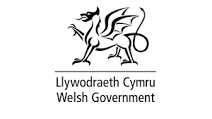HISTORIC PRESS RELEASE : Stephen Timms announces ´Watermark´ contract to reduce the public sector´s water bills [October 2000]
The press release issued by HM Treasury on 19 October 2000.
A new water-monitoring database system aimed at saving energy and providing the public sector with benchmarks and targets for lower water consumption has the potential for huge savings, Stephen Timms, Financial Secretary to the Treasury, announced today.
The Watermark project, a sophisticated Government model for tracking the usage of water and effluent services by the wider public sector, will enable savings to be made on future water bills principally by reducing consumption and the adoption of meters across the estate.
Speaking in London about the new project at a Water Companies conference, Stephen Timms said:
“We all need to work towards conserving energy and water consumption and to reduce CO2 emissions. This is essential if we are to meet our environmental targets and improve our energy conservation methods. The potential for savings for the taxpayer are immense.
As a first step to increasing awareness and filling the huge knowledge gap across the public sector on how it uses water, we must have a better insight into such usage and to understand how better to manage consumption. To manage this spend more effectively and to reduce water consumption, benchmarking and management information is essential.
This contract is the first step towards providing a computerised database which will allow quick and easy data analysis of the water consumption. This will provide departments with meaningful management information to allow better control and planning of expenditure.”
Peter Gershon, Chief Executive of the Office of Government Commerce (OGC), set up to improve procurement best practice across Government, said:
“There is a clear potential for the OGC to enter into strategic partnerships with suppliers in the area of energy conservation and to assist departments deliver best value for money in the public sector’s commercial activities. I am delighted to be supporting a project that could bring real gains to the public sector and to be supporting the Greening Government Operations Strategy which seeks to reduce water consumption.”
The current £600m spend on water services by the wider public sector – central government and local authorities – is expected by the end of the Watermark study in April 2002 to have the potential to deliver savings of up to 10% each year on the total spend in this area. This equates roughly to around £30m for central government and £30m for local authorities.
It is estimated that ninety per cent of the potential savings projections could be achieved through improving greater understanding and awareness of reducing water consumption, including less wastage, and addressing greening issues including wasted energy such as pumping and wasted hot water. The ten per cent could be derived from implementing correct metering where rateable charges exist. Some capital spend may be required in this area.
Currently DfEE, DETR, DSS, HM Treasury, HMP Prison Service, Ofwat, Inland Revenue, Police Authority for Northern Ireland, Rutherford Appleton Laboratories (NDPB) the Environmental Agency and The Metropolitan Police are involved with the Watermark project.
It is estimated that there will be some potential for some savings before the Watermark contract comes to an end in April 2002. Much will depend on how quickly departments react to the benchmark data they receive.
The Watermark project is funded through the Government’s Invest to Save Budget and is managed by The Buying Agency (TBA), an executive agency of the OGC. The contract worth £250,000 is for the provision of Watermark’s computerised database and is with Energy Metering Technology (EMT), a specialist energy consultancy. Watermark is supported by the Department of the Environment (DoE), Transport and the Regions (DETR) and the Department for Education and Employment (DfEE).
The OGC will, through its remit, provide central Government procurement departments and agencies with a new drive to improve performance so helping them to deliver best value for money in their commercial activities. The OGC is currently on track to deliver £1 billion value for money procurement gains across the public sector in meeting its £1 billion target over three years.


